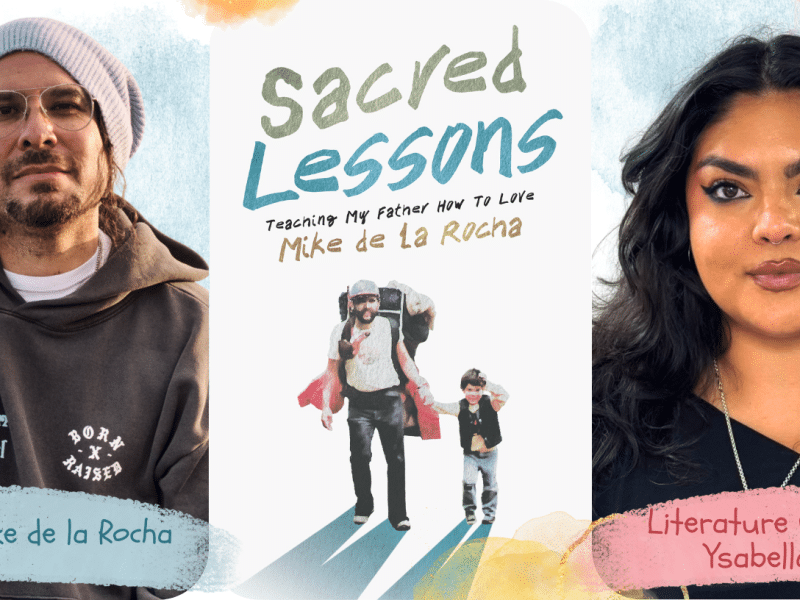Why Hollywood’s Typecasting of Latinos is No Laughing Matter
In Hollywood there’s an ongoing joke: whenever a role calls for a tough-looking, vaguely Latino guy, it’s time to bring in Noel Gugliemi. It’s become almost predictable to see him pop up in movies as a dude named “Hector.” This creates harm that’s more far-reaching than you think.

In the corridors of Hollywood’s studios, there’s an ongoing joke: whenever a role calls for a tough-looking, vaguely Latino guy, it’s time to bring in Noel Gugliemi. It’s become almost predictable to see him pop up in moves as a dude named “Hector.”
On the surface, it seems comical, but dig a little deeper, and the joke starts to lose its humor. This ongoing gag demonstrates a narrow representation of Latino men in film: tough, often affiliated with crime, and rarely given a backstory that humanizes them beyond their hardened exterior. It might seem easy to laugh it off, but that’s been going on for far too long.
Gugliemi’s typecasting is a clear testament to the broader issue of Latino and Latina stereotypes in the entertainment industry. What is presented as a light-hearted in-joke reveals a more unsettling and entrenched reality: the habitual reduction of the vast, diverse Latino community into single-note characters.
Typecasting and Stereotyping: What’s the Difference?
For the uninitiated, it’s crucial to understand the nuanced difference between typecasting and stereotyping within the world of cinema. Typecasting refers to the repetitive casting of actors in specific roles based on their appearance, background, or previous roles, rather than on their potential range or talent. A prime example would be Danny Trejo, who, despite his expansive abilities as an actor, has often been typecast as the “tough guy” or villain due to his rugged appearance and previous roles.
On the other hand, stereotyping in films revolves around reducing an actor or a character to a set of generalized traits attributed to their ethnic, cultural, or social group. Rosario Dawson, a talented Latina actress, has spoken out about how Latinas are frequently stereotyped in films as the “spicy” or “fiery” character, limiting the depth and complexity with which their characters are portrayed. Both of these practices, though distinct, converge to limit the opportunities and narratives of Latine actors and actresses in Hollywood.
Latina actresses have long grappled with being pigeonholed into very specific roles. Jennifer Lopez, for instance, broke ground as Selena Quintanilla in “Selena” but subsequently found herself pushed into roles as the fiery temptress or the passionate lover. Similarly, Sofia Vergara, with her comedic prowess showcased in “Modern Family,” often has her characters distilled down to a spicy Latina caricature, with her accent as the punchline.
Salma Hayek, an Oscar-nominated actress with a repertoire spanning genres, spoke about the early days of her career in Hollywood. “They’d tell me, ‘It’s a waste of time,'” she once mentioned, recounting the rejections because of her accent or for being “too Latina.” It’s a testament to Hayek’s talent and determination that she forged her own path as an actress and a producer, but the sentiment remains: Latina actresses are far too often funneled into the roles of sassy maids, seductresses, or hot-tempered sidekicks.
Beyond the confines of Hollywood, the ripple effects of these stereotypes manifest deeply within society, especially for Latinas. The entertainment industry’s portrayal of Latinas as sultry temptresses or firecrackers isn’t just a character issue—it’s a societal one. This cinematic trope has led to Latina women being fetishized and sexualized in real life. The constant sexualization can create undue pressures on Latinas to fit a particular mold, which can affect their self-esteem and mental health. This ongoing fetishization not only limits the opportunities for these actresses in Hollywood but also perpetuates harmful myths about Latina women in the broader social context.
Reductive stereotypes and constant typecasting don’t just affect the careers of talented actors and actresses; they shape the cultural perception of an entire community. When a community is consistently portrayed in a singular, negative light, it can perpetuate ignorance and bias, reinforcing damaging stereotypes in real life.
Latino stories are as diverse as the community itself, spanning countries, cultures, and experiences. While there have been positive strides in recent years, like the first-ever Latino-owned movie studio in Hollywood being launched, there’s still much work to be done.
Pop culture is like a mirror, reflecting society’s views and beliefs back to us. When that reflection is limited or skewed, it paints an incomplete picture. It’s high time Hollywood broadens its canvas to capture the diverse tales of the Latino community – stories bursting with passion, resilience, dreams, and so much more. Only by showcasing this diversity can we challenge the limiting narratives that overshadow the brilliance of countless Latine actors and actresses.
Our vision is clear: a silver screen that feels genuine, resonating with the narratives we hold close and the community we cherish. Here’s hoping Hollywood is tuning in.




